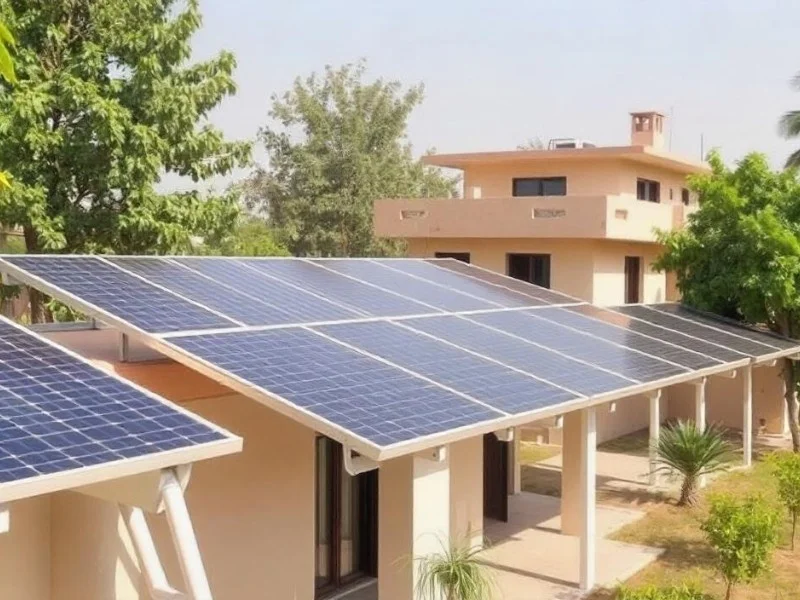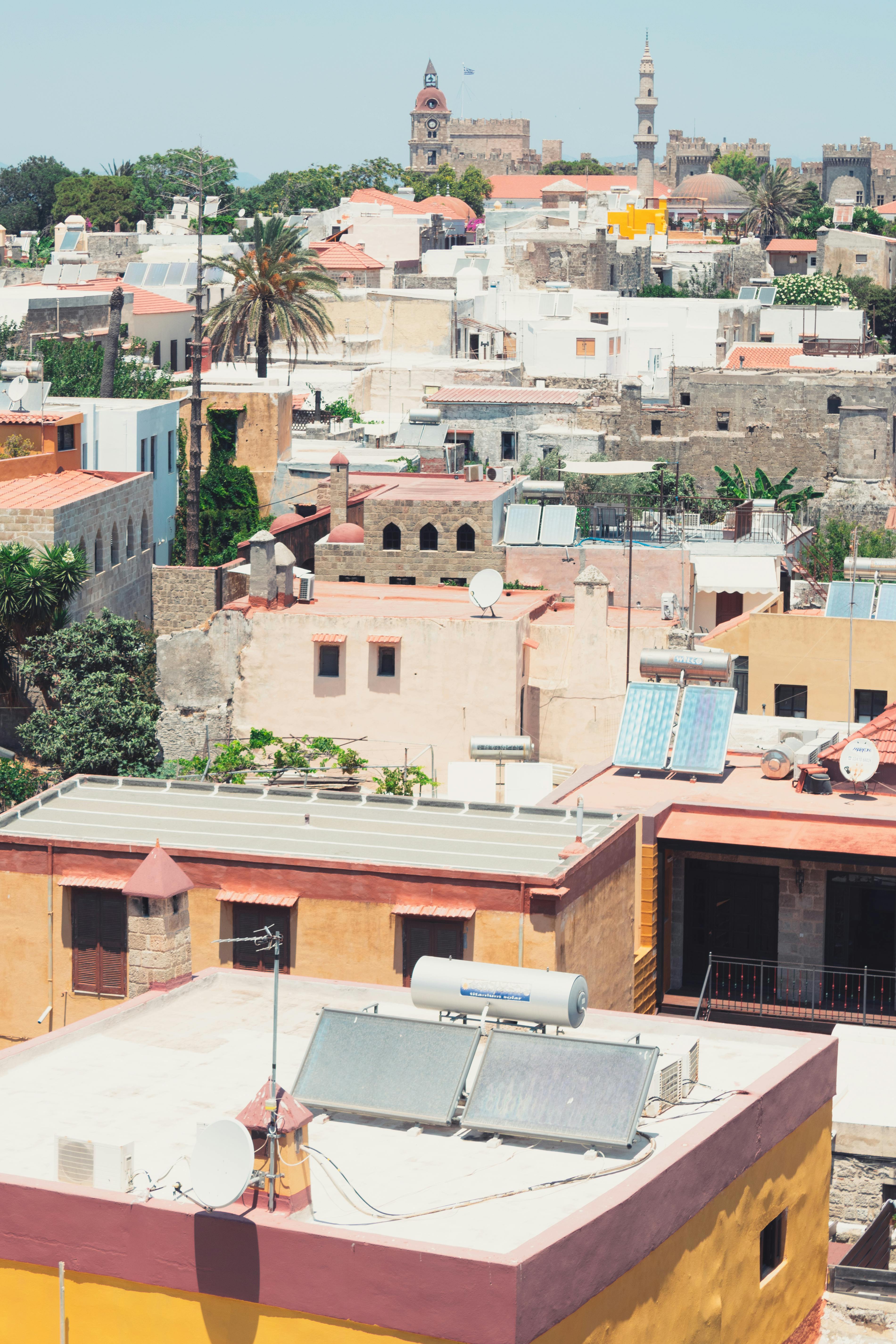In most businesses, you request quotations for various services or products. When assessing these quotations, you typically consider factors such as offerings,pricing, company reputation, and delivery time. However, when it comes to installing a solar plant, it's a significant decision that requires careful evaluation to choose the right solar EPC Company for your rooftop.
Before understanding how to assess solar EPC (Engineering, Procurement, and Construction)quotations, there are additional factors to consider beyond the bill of material. These include the company's location, service centres, number of solar power plants installed, savings, solar generation operation and maintenance terms, payment terms, and project timeline.
Let’s get started:
Company Evaluation
It's essential to select the right EPC Company with relevant experience. An experienced EPC Company has likely learned from previous installations,ensuring quality workmanship without unnecessary costs to you.
Visit an Installation
Request to visit at least one of the EPC Company's previous sites, preferably one of a similar size and type to your project. This allows you to assess their workmanship, safety practices, and get a preview of how your solar plant will look.
Savings and Returns
Investing in a solar project is a huge deal, it is a significant investment which should reap benefits for more than 25 years, hence it is necessary to understand how savings will work out.
The capacity of the solar plant, location and other factors like orientation,slope, determines the generation from the solar power plant. The generation numbers determine savings that can be reaped from the plant.
Now, letus understand savings from a solar rooftop plant,
In India,an average of 4 kWh/kWp/day is the optimum generation one can achieve. This may vary month by month, but average of 4 is acceptable. The figure can be higher or lower depending on factors like orientation and tilt. You can consider a tolerance of ±10% while evaluating the generation.
So, if you are installing a 100kWp plant, then an average annual generation of 150,000 kWh/year is acceptable and indicates a well performing plant.
Now, let us move to savings, considering the tariff levied by the DISCOM is Rs. 10/kWh then your direct annual savings will be Rs. 15,00,000/- in the first year.
Note:Also, it is important to know that the plant performance will degrade over a period of time. Every Year degrades by 0.5%. Hence the lifetime savings will be calculated accordingly.
Payback Period
One should ideally be able to get the invested money back in 1-4 years depending on grid tariff currently paid. It is important to know that payback period depends on the
- total capex invested
- the performance of the plant
- and most importantly the tariff offered by the DISCOM.
Higher the tariff lesser will be the payback period.
Also, itis important to know that the government incentivizes industries when they invest in renewable energy assets like solar power plant through accelerated depreciation.
Accelerated Depreciation(AD)
Accelerated Depreciation is particularly beneficial for commercial and industrial consumers, this approach allows for a faster depreciation of investment in a solar power plant compared to conventional plants and machinery.
AD can be availed at the rate of 40% per annum
- In terms of tax saving, solar plant owners can deduct 40% of the solar plant’s cost every year during its early operational stage. This translates to reduced taxable income and lower income tax liabilities, freeing up cash flow for reinvestment in the initial phase. Typically a plant gets substantially depreciated in 3 years.
- The cost saved by businesses enables them to reduce tax payments in the short term,allowing the redirection of cash into other critical areas like research and development, expansion initiatives, or loan repayments.
Payment Terms
EPC companies typically provide a standard payment breakdown based on project milestones. However, there is usually some flexibility, so your procurement team should review and finalize the payment terms.
Scope of work
When installing a solar power plant, EPC companies handle most of the work. It's important to understand the exact scope of their work. You need to give the EPC company the necessary means and resources for a smooth installation process.
- Load bearing capacity of the roof
- While a visual inspection does the work if the roof isn’t too old, but getting your roof checked by a structural engineer is always advisable.
- The EPC company will provide you the static and dynamic weight of the entire system.
- For a Tin shed roof, the static weight could 15-20 kg/m2 depending on the size of module and
- The dynamic weight can vary between 80-100 kg/m2.
- Access to the roof
- A safe access to the roof in the form of a monkey ladder or a regular stairway is necessary even for pre-feasibility
- Access to the internet
- The remote monitoring system of the rooftop plant that helps you to visualize plant information and real time performance on a dashboard requires internet. It could be either Wi-fi connection or a 4G connection depending on the type of system the EPC suggests.
- Any kind of plumbing work
- This is typically required for the water source, if the quotation includes cleaning system, then the EPC might request you to make a water source available at the roof with sufficient pressure.
- Space for material storage
- Although solar rooftop is an outdoor system,during the installation, it is always advised to provide a secure and closed space for the materials of the system. This is to avoid any loss, theft and protecting equipment’s till the installation from any damage.
- Auxiliary power
- During the installation, the team working on the roof will need auxiliary power for drilling, cutting etc which has to be provided through the factory premise
Project Timeline
The company should provide a clear project timeline with a detailed execution plan once the contract is signed, but they should give a rough estimate before contract finalization. Typically, a 45–60-day timeline is acceptable for theend-to-end installation and commissioning.
Solar Panels
Selecting the right type of solar panels is crucial. Look for Tier-1 panels with a 25-year warranty as these panels are manufactured by companies with a strong financial standing. Request the datasheet of the solar panels to assess technical specifications and performance warranties. Also, ask for a monocrystalline panel preferably more than 500Wp with a performance warranty of minimum 10-12 years. For larger installations, ask for testing reports for the specific panels that will be used.
Inverters
Choose inverters from reputable brands with maximum warranty periods (typically 5 years). Consider multi-MPPT inverters if your installation will be across multiple roofs with different orientations,and look for inverters with IoT/internet service capabilities.
The solar panels come with a 25-year warranty, while the inverters are covered for 5 years. However, the rest of the system is not under warranty. To ensure the system functions well for the next 25 years with minimal costs,regular operation and maintenance are essential. It's crucial to choose reputable brands for the remaining components like Lapp, Leoni, or Polycab forc ables, and Staubli for MC4 connectors. Using trusted brands guarantees better quality materials that last longer and can withstand outdoor conditions. It's advisable to carefully consider these brands and ask the EPC company to include them in the quotation if they haven't already done so.

Liaisoning
Ensure the EPC takes responsibility for coordinating with the DISCOM (Distribution Company) for processes such as net metering and commissioning. If the solar plant is applicable for CEIG (Chief Electrical Inspectorate General), ensure this is included in the proposal.
Operation and Maintenance
Check if the quotation includes 1 year of Annual Maintenance Contract (AMC) with at least 4 technical visits. Inquire about additional services such as panel cleaning.
This is how you can evaluate solar rooftop quotations and choose your EPC contractor wisely.

.webp)
.webp)
.webp)
.png)

.jpg)
.jpg)







.jpg)





.jpeg)












.jpg)


.png)
.png)
.png)
.png)
.png)


.png)


.jpg)
